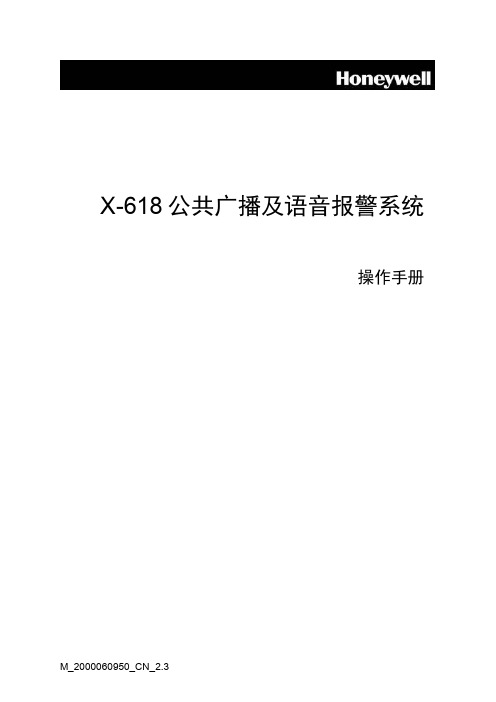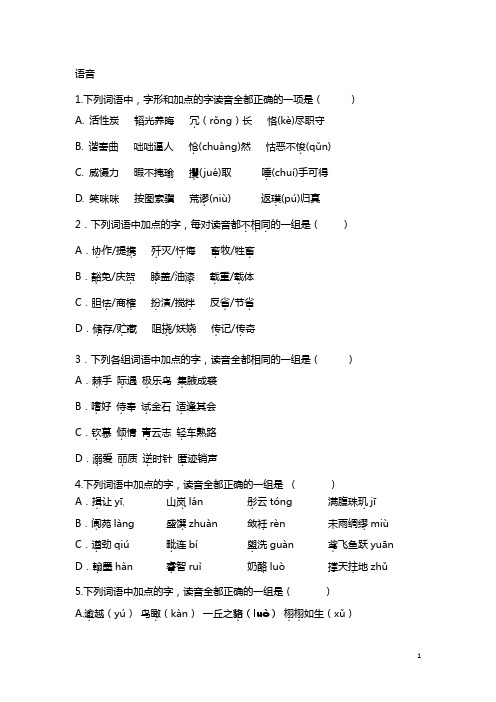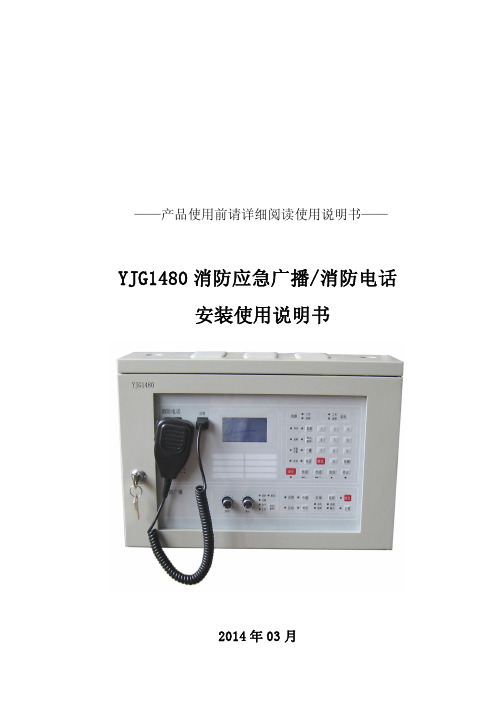高考广播提示语音mp3
应急广播播报语音文案

应急广播播报语音文案
1、尊敬的顾客朋友:
本商场xxxxx部位发生(xxxx)事故,但已经得到有效控制,请您不要惊慌,在听到广播后,听从商场工作人员的安
排,从最近的.安全出口有序的撤离,撤离时请不要乘坐电梯,请听从现场人员的指挥。
谢谢您的合作!
2、尊敬的顾客朋友:
本商场_____部位发生()事故,但已经得到有效控制,请您不要惊慌,在听到广播后,听从商场工作人员的安排,从最
近的安全出口有序的撤离,撤离时请不要乘坐电梯,请听从现
场人员的指挥。
谢谢您的合作!
3、全体教职员工请注意:
在学校教学楼发现火情,现立即启动消防应急预案。
请各
就各位,立即行动。
1、灭火行动组组长李昌瑜组织组员扑火;
2、通讯联络徐龙翔发组织组员报警,拉响火警信号;
3、疏散引导组邓涛织组员指挥学生按预设的通道有序、快速、安全地撤离教室到操场集合,并清点人数报告李昌瑜校长。
4、防护救治组陈富秀老师组织组员对受伤人员进行救治。
5、各班统计人数表。
高考英语中如何提高听力和口语能力

高考英语中如何提高听力和口语能力高考对于每一位学子来说都是至关重要的,而英语作为其中的重要科目,听力和口语能力的提升不仅对于高考成绩有着直接的影响,更对未来的学习和发展有着深远的意义。
那么,在备战高考的过程中,如何有效地提高听力和口语能力呢?首先,要明确高考英语听力和口语的考查要求。
高考英语听力主要考查考生对英语语言的理解能力,包括对各种语音、语调、语速的适应,对关键词、关键句的捕捉,以及对整体内容的把握。
而口语部分,虽然在很多地区高考中并非直接考查,但良好的口语能力能够帮助提升听力水平,增强语感,对书面表达也有积极的促进作用。
多听是提高听力能力的基础。
可以通过听英语广播、英语电影、英语歌曲等方式,让自己沉浸在英语的声音环境中。
在听的过程中,不要仅仅是听,还要尝试理解。
一开始,可以选择一些语速较慢、内容简单的材料,比如适合初学者的英语广播节目。
随着能力的提升,逐渐增加难度,选择语速较快、内容更复杂的听力材料,比如英语原声电影。
听英语教材中的课文录音也是非常有效的方法。
在听之前,可以先预习课文,了解大致内容。
听的时候,注意模仿录音中的语音、语调,注意连读、弱读等发音技巧。
听完后,可以对照课文,检查自己理解的是否正确,并反复听那些没有听懂的部分。
做听力练习题是必不可少的。
可以选择历年高考英语听力真题,按照考试的要求和时间进行模拟练习。
做完后,认真对照答案,分析错误的原因,是因为没有听清关键词,还是对内容的理解有误。
对于经常出错的题型,要进行针对性的训练,总结解题技巧。
除了多听,还需要掌握一些听力技巧。
比如,在听力开始前,要快速浏览题目和选项,预测听力内容的大致方向。
在听的过程中,要抓住关键词和关键句,注意一些表示转折、因果、列举等关系的词汇,如 but、because、firstly 等。
如果遇到没有听懂的部分,不要纠结,继续往下听,以免错过后面的重要信息。
口语能力的提升离不开模仿。
可以通过模仿英语原声电影、电视剧中的角色发音,来纠正自己的发音错误,学习地道的语音、语调。
X-618公共广播和语音报警系统 操作手册_CN_V2.3

i
安全使用注意事项
设备的安装必须由专业人员进行。 使用前请注意检查电源线不能有破损现象,电源线必需严格按照标识与设备连接。 电源插头和电源插座应该匹配。如果插座和插头不匹配,必须更换合适的电源插座。不允许人 为破坏电源插头。 提供设备使用的电源,应该有足够的容量,并且有独立的、可靠的接地线。 请注意工程施工过程中务必使设备电源地线连通并与大地相连,否则会导致设备工作不正常, 甚至损坏。 内部有高压线路,接通电源时,请勿擅自打开机盖,以防触电。 在第一次通电启动设备前,请注意设备外部接线是否正确,以免损坏设备。 在通电过程中,请勿随意触摸有闪电标识的接线端子,以防触电。 请勿在通电情况下,随意更改设备连接线路,以免对设备造成损坏。 如机器发生故障,请专业维修人员进行维修,否则出现任何问题,本公司将不予处理,并且不 负相关责任。
标签与用户手册
请注意产品上所贴标签上的有关产品类别、电源等信息。 请仔细阅读用户手册,按照说明书进行操作。用户手册供不同型号的产品操作参考,各个型号 的具体操作不一一列举,遇到问题请与本公司联系。 请长期保留本手册,以便以后查看。
ii
目 录
安全指引............................................................................................................................................. i
用电安全
产品安装和操作必须遵守当地电气安全规定。 本公司不对因错误安装和误操作引起的火灾或电击事件负责。
运输安全
产品在运输、存储和安装时勿受撞击、强烈震动或液体侵蚀。
第一部分--基础知识及运用-知识点1-语音-教案(word文档物超所值)

第一部分基础知识及运用知识点1 语音【教学目标】1.依据教学大纲,了解《考试说明》对此项考查的要求。
2.通过分析高考试题,寻求规律,掌握考查的重点。
3.加强备考方法的指导,强化基础训练。
【教学方法】讲练结合,注重积累。
【教学重点难点】重点:复习方法指导;强化语音识记。
难点:学习态度;习惯性误读字和生僻字的识记。
【课时安排】六课时。
其中知识点1语音以及知识点精练的讲解需要二课时;知识清单“容易读错的字”讲解需要二个课时;同步检测语音部分考试及讲解二课时。
【教学过程和步骤】一、导入对口高考语文复习方法(一)分析学生现状语文基础不是很好;要做好打持久战的准备。
(二)语文复习方法1.语文复习要注重教材,重点是教材中的字词和应用文写作;2.语文知识要及时去记、去背;及时扫除知识障碍;3.语文知识重在积累,重在坚持不懈,持之以恒;4.多做题目,特别是阅读题,要勤于动笔;5.提纲挈领,总体把握每一个知识点的内容。
二、讲解新课(一)本知识点包括以下几方面的内容考纲解读;知识点精讲(例题解析——高考真题;方法指导);知识点精练。
(二)讲析新课1.复习定向所谓“识记”,就是识别和记忆。
识记的对象是“现代汉语普通话的字音”。
普通话是中华民族的母语,正确“识记现代汉语普通话的字音”,是考生必须具备的能力。
我国自1977年恢复高考以来,语音题一直是高考必考题型。
1996年后语音题所考内容及题型开始趋于稳定,要求相当明确,即只考“识记现代汉语普通话的字音”。
2.指导学生阅读“知识点1语音”(复习用书P1——4页)(1)学生看并做高考语音题。
(2)寻找高考总趋向:近年来高考对语音的考查,难度有所降低,据统计,1996年语音题考12字,超出常用字的5个,1997年超出4个,1998年和2001年、2002年全部是常用字,因此复习范围一般应放在现代汉语2500个常用字和1000个次常用字上,特别注意日常交际中容易读错的字。
在题型上也由选正确项改为选错误项,减少辨音的干扰,在语言材料的选择上,不涉及因方言不同而造成的声调问题;另外,每项三四个词语(包括成语),把语音放在具体的词语中考查,同时也保证了考查的量。
博世PRAESENSA IP网络化全功能公共广播和语音报警系统说明书

IP网络化 & 全功能PRAESENSA公共广播和语音报警系统PRAESENSA,IP网络化 & 全功能博世推出了PRAESENSA,这是公共广播和语音报警(PAVA)系统的新标准。
该系统为楼宇内的每个区域提供高质量的音乐或信息音频,并通过呼叫站触摸屏上直观的图形用户界面进行控制,或通过平板电脑或PC上运行的个性化软件进行控制。
这种高级的公共广播和语音报警系统安装方便,经济高效,使人们更加安心。
这是一款先进的公共广播和语音报警系统,完全基于IP网络,功能完备。
安装和集成非常简单,并且它提供了出色的音质和易于使用的界面。
PRAESENSA使用IP连接和带集成冗余的智能电源概念,为您提供一个非常经济高效的系统,同样适用于集中式或分布式拓扑结构。
商场 | 多功能楼宇 | 展览中心 | 酒店 | 教育 | 机场发电站 | 石油和天然气 | 隧道 | 地铁 | 铁路23...适用于每个中大型应用该系统的所有组件均使用IP联网,可确保最高的灵活性和可扩展性创新的功放架构可智能分配功率,降低拥有成本通过内置冗余消除单点故障是系统概念的核心以用户为中心的设计提供了一个直观的界面,其中包含关于进度和状态的反馈全面的系统可适应不断变化的需求功能完备的标准配置优化的用户体验最高的系统可用性高效的功率分配安全的IP架构最高的互操作性、灵活性和可扩展性...终于,系统内的所有组件都能轻松可靠地互相通讯。
基于一个先进的媒体网络架构,PRAESENSA为广播应用中的所有区域提供完整的控制和通讯功能。
当应用环境发生改变时,例如增加或调整了更多分区,PRAESENSA能够立即适应这些改变。
得益于全IP网络连接,系统获得高度的适应性和可扩展性。
具备本地冗余供电的功率放大器,使系统能够适应集中式或分布式安装。
所有PRAESENSA设备都内置一个预配置的多口千兆以太网交换机。
这既能确保系统完全符合EN54-16认证要求,又能降低第三方网络设备的成本。
高考语音题汇编

语音1.下列词语中,字形和加点的字读音全都正确的一项是()A. 活性炭韬光养晦冗.(rǒng)长恪(kè)尽职守B. 谐奏曲咄咄逼人怆.(chuàng)然怙恶不悛.(qǔn)C. 威慑力暇不掩瑜攫.(jué)取唾.(chuí)手可得D. 笑咪咪按图索骥荒谬.(niù) 返璞.(pú)归真2.下列词语中加点的字,每对读音都不相同...的一组是()A.协.作/提携.歼.灭/忏.悔畜.牧/牲畜.B.豁.免/庆贺.膝.盖/油漆.载.重/载.体C.胆怯./商榷.扮.演/搅拌.反省./节省.D.储.存/贮.藏阻挠./妖娆.传.记/传.奇3.下列各组词语中加点的字,读音全都相同的一组是()A.棘.手际.遇极.乐鸟集.腋成裘B.嗜.好侍.奉试.金石适.逢其会C.钦.慕倾.情青.云志轻.车熟路D.溺.爱丽.质逆.时针匿.迹销声4.下列词语中加点的字,读音全都正确的一组是()A.揖.让yī山岚.lán 彤.云tóng 满腹珠玑.jīB.阆.苑làng 盛馔.zhuàn 敛衽.rèn 未雨绸缪.miùC.遒.劲qiú毗.连bí盥.洗guàn 鸢.飞鱼跃yuān D.翰.墨hàn 睿.智ruì奶酪.luò撑天拄.地zhǔ5.下列词语中加点的字,读音全都正确的一组是()A.逾.越(yú)鸟瞰.(kàn)一丘之貉.(luò)栩栩..如生(xǔ)B.溃.败(kuì)凹.陷(wā)贻.笑大方(yí)兢兢..业业(jīng)C.咀.嚼(zǔ)桧.柏(guì)罄.竹难书(qìng)饕餮.大餐(tié)D.觊.觎(jì)攻讦.(jié)光阴荏苒.(rǎn)心怀叵.测(pǒ)6. 下列词语中加点的字,每对读音都不相同的一组是A. 磅.秤/磅.礴仿佛./佛.手瓜刨.除/刨.根问底B. 钥匙./汤匙.漩涡./涡.轮机调.节/调.虎离山C. 驻扎./扎.实亲.事/亲.家母伎俩./仨瓜俩.枣D. 果脯./胸脯.胳臂./长臂.猿倔强./强.颜欢笑7. 下列词语中加点的字.读音全都正确的一组是A.吉.祥(jí)棱.角(líng)狡黠.(xiá)长吁.短叹(xū)B.浸.润(jìn)蓦.然(mò)腈.纶(qíng)残碑断碣.(jié)C.喟.叹(kuì)愤慨.(kǎi)盥.洗(guàn)呱.呱坠地(guā)D.阻挠.(náo)女娲.(wā)咯.血(kǎ)戛.然而止(jiá)8、下列词语中加点的字,注音有错误的一组是A、给.(ji)予毛坯.(pi)强劲.(jing)人心惶.(huang)惶B、山崖.(ya)霎.(sha)时掳掠(lue) 沁人心脾.(pi)C、馄饨.(dun)不屑.(xie)嫉.(ji)妒令人咋.(zha)舌D、神甫.(fu)订.(ding)正烙.(lao)印摄人心魂(hun)9.下列词语中,加点字的读音全都正确的一组是A.包扎.(zā) 殷.红(yān) 损兵折.将(zhé) 还.看今朝(hái)B.劲.敌(jìng) 答.理(dá) 转弯抹.角(mò) 悄.无声息(qiǎo)C.阡陌.(mò) 膝.盖(qī) 舐.犊情深(shì) 刚愎.自用(bì)D.镌.刻(juān) 恪.守(kè) 迄.今为止(qì) 煽.风点火(shàn)成语运用1. 下列句子中,加点的成语使用正确的一项是()A. 这位明星曾带给观众很多快乐,不少“粉丝”竞相模仿他的表演,但这次他因醉酒驾车而触犯法律的行为却不足为训....。
消防广播电话系统

——产品使用前请详细阅读使用说明书——YJG1480消防应急广播/消防电话安装使用说明书2014年03月目 录1. 概述 (1)2. 技术特性 (1)3.结构特征 (2)4.安装、调试 (4)5.使用与操作 (5)6.故障分析与排除 (13)7. 安全保护装置及事故处理 (14)8.保养与维修 (14)9. 包装、贮存 (14)10.开箱及检查 (14)11.其他 (15)12.售后服务 (15)1.概述YJG1480型消防壁挂柜包含消防电话系统和消防广播系统二部分,可分别完成现场消防通讯功能和消防广播功能。
消防电话固定可带4路电话分机或电话插孔,可连接YJGF3040□分设备组成消防电话报警系统。
消防广播最大输出功率为80W,固定可带2个广播分区。
系统采用汉字液晶显示,并配有电子录音单元,执行GB16806-2006标准。
1.1产品特点1.1.1消防电话系统●可与分机进行可靠的通讯,可对在线的分机进行一次登记并保持运行过程中的实时检测,对登记存在的分机出现开路故障可快速作出报警,便于日常维护。
●系统配备YJGF3040A电话分机,分机摘机即可呼叫主机,主机呼叫时分机振铃;配备YJGF3040B电话手柄和YJGF3040C电话插孔可以呼叫电话主机。
●本系统为固定4路配置。
1.1.2消防广播系统●最大输出功率为80W,有2个固定广播分区,具有短路保护功能。
●有话筒、外线、MP3、电子语音等4种音源供广播时选择。
●有手动和联动两方式启动应急广播。
●可接受外部的串口控制命令或逻辑控制命令启动联动应急广播。
●待机时对登记区域自动实时巡检,在输出有短路或断路时进行故障提示。
1.2主要用途及使用范围●用于现场出现紧急情况时(如:火警、匪警及其它突发性灾害事件),电话系统能提供方便的通讯手段。
同时可详细记录呼叫、接通时间及通话内容。
广播系统可提供必要应急广播功能,方便现场的信息发布。
●电话线路和广播分区适用于多线(2N线)连接方式,信号通讯、传输可靠性高,便于维护。
高考听力那些事儿

听力那些事1.考试说明1. 听力要求考生听懂有关日常生活中所熟悉的简短对话和独白。
考生应能:(1) 理解主旨和要义;(2) 获取事实性的具体信息;(3) 对所听内容作出简单推断;(4) 理解说话者的意图、观点或态度。
目的:测试语音、句子重音、连读、不完全爆破、意群和停顿、升调和降调等以及流畅程度。
一档(9~10分)语音语调正确,朗读自然流利,且有节奏感。
语音知识附录语音和话题、功能表一、语音项目表1.基本读音(1)26个字母读音(2)元音宇母在重读音节中的读音(3)元音字母在轻读音节中的读音(4)元音字母组合在重读音节中的读音(5)常见的元音字母组合在轻读音节中的读音(6)辅音字母组合的读音(7)辅音连缀的读音(8)成节音的读音2.重音(1)单词重音(2)句子重音3.读音的变化(1)连读(2)失去爆破(3)弱读(4)同化4.语谓与节奏(1)意群与停顿(1)语调(2)节奏5.语音、语调、重音、节奏等在口语交流中的运用6.朗诵和演讲中的语音技巧7.主要英语国家的英语语音差异三、功能意念项目表1. 社会交往(Social Communications)(1)问候(Greetings)A. Hi!Hello!Good morning / afternoon / evening.How are you?How are you doing?Please say hello to your parents.Please give my love / best wishes to Lucy. B. Hi!Hello!Good morning / afternoon / evening.I'm OK.Fine, thanks, and you?Very well, thank you.*Just so so.Sure.All right.(2)介绍(Introduction)A. My name is Jim.I'm a student.I'm from England.This is Mr. / Mrs. / Miss / Ms Brown.I'd like you to meet Bob.* May I introduce Professor Jeff Brown? B. Hello!How do you do?Nice / Glad / Pleased to meet (see)you. (3)告别(Farewells )A. Good-bye / Bye / Bye-bye.Good night.See you later / then / tomorrow / soon.I am sorry I have to go now.* I am afraid I must be leaving now.B. Good-bye / Bye / Bye-bye.See you.Good night.See you later / then / tomorrow / soon. (4)感谢(Thanks )A. Thank you (very much).Thanks a lot.Thank you for your help.It's very kind / nice of you.* I appreciate your help.B. It's a pleasure.* My pleasure.That's OK/ all right.You're welcome.* Don' t mention it.(5)道歉(Apologies)A. Sorry. I'm sorry.Excuse me, please.I beg your pardon.I' m sorry for losing your book.I'm sorry to interrupt you.I'm sorry (that)I'm late.B. That's OK.It's all right.Never mind.It doesn't matter.It's nothing.* Forget it.(6)邀请(Invitation)A. Would you like to go for a walk? You must come to dinner with us. May I invite you to dinner?What / How about having a swim?B. OK.①Thank you.I'd like that, thanks.Yes, I'd love to.That would be very nice.②No, thank you.It's very nice of you, but my mother is ill.I'd love to, but I'm afraid I have no time.I'm sorry I can't. What about another time?(7)请求允许(Asking for permission )A. May I come in?Can / Could I use your telephone?* Is it all right if I sit here?* I wonder if I could smoke here.Would / Do you mind if I open the window?B. ①Yes, please. Sure. Certainly.* Please do. That's all right. Of course, you can.* Go ahead, please.②I'm sorry, it's not allowed.I'm afraid not. You'd better not.* It' s not allowed.* I'm sorry, but you can smoke in the next room.(8)祝贺与祝愿(Expressing wishes and congratulations)A. Have a good day / time!Have a good journey / trip!Good luck!Enjoy yourself!Best wishes to you.Happy New Year!Merry Christmas!Happy birthday!Wish you all the success! Congratulations!Well done!B. Thank you.You, too.The same to you.(9)提供帮助(Offering help)A. Do you want me to clean the room? Can I help you?Would you like me to help you?What can I do for you?Let me take your bags.B. ①Yes, please. Yes, thanks. Thank you.That would be nice / fine.Thank you for your (the)help.②No, thanks / thank you.Thank you all the same.That's very kind of you, but I can manage it myself. (10)接受或拒绝(acceptance and refusal)(11)约会(Making appointments )A. Will you be free tomorrow?Do you have time this afternoon?How about tomorrow morning?When / Where shall we meet?Could we meet at 4:30?Let's make it 4:30.What time is convenient for you?I'd like to make an appointment with Mr. Jones.B. ① Yes, I'll be free then.All right. See you then.②I'm afraid I have no time then.Sorry, I won't be free then. But I'll be free tomorrow. (12)打电话(Making telephone calls )A. Hello! May I speak to Tom?Hello! I'd like to speak to Mr. Green.Is that Liu Ying speaking?Extension six two two six, please.Can I leave a message?I'll call back later / again.I'll ring him / her up again.B. Hello! This is Mary speaking.Hello, who is this?Hold the line, please.Just a moment, please.Hello, who's speaking?Sorry. He / She isn't here right now.Can I take a message?Sorry. I can't hear you.The line is bad / busy.I couldn't get through.Sorry, I'm afraid you have the wrong number. (13)就餐(Having meals)A. Would you like something to eat / drink? What would you like (to have)?Would you like some more fish?Help yourself to some fish.* Which do you prefer, rice or noodles?* What would you like to drink, tea or coffee?B. ①Yes, I'd like a drink.I'd like rice and chicken.Just a little, please.Can I have some more soup?It's so delicious. Thank you.* I prefer noodles to rice. I like green tea.②No, thank you. I've had enough.I'm full, thank you.It's very delicious, but I can't eat any more. (14)就医(Seeing the doctor)A. What's the matter?What seems to be the trouble?Do you have a fever?How long have you felt like this?It's nothing serious.Take this medicine three times a day.You'll be all right / well soon.* Give up smoking and keep on taking more exercises.B. I have a headache / cough / fever.I feel terrible / bad / horrible / awful.I don't feel well.I've got a pain here.It hurts here.*I don't feel like eating.I can't sleep well.(15)购物(Shopping)A. Can / May I help you?What can I do for you?How many / much would you like?What colour / size / kind would you like?What about this one?Here's your change.B. I want /I'd like a pair of shoes.How much is it / are they?May I try it on?It's too big / small.Sorry, it's too expensive.Do you have any other colours / sizes / kinds?Two and a half kilos / pounds, please.That's fine. I'll take it.Just have a look.Well, I'11 think about it.(16)问路(Asking the way)A. Excuse me. Where's the washroom?Can you tell me how to get to the post office?Excuse me. Which bus goes to World Park?Excuse me. Which is the way to the Bank of China?Excuse me. Could you tell me the way t6 the station, please? How can I get to No. 4 Middle School?B. ①It's ov er there.It's about 400 metres from here.Go down this street until you see the tall red building. Turn right / left at the first / second crossing / comer. You can't miss it.You can take bus No. 103.You'd better take a taxi. ?②Sorry. I don't kno w. I'm a stranger here.(17)谈论天气(Talking about weather)A. What's the weather like today?How's the weather in Beijing?What a cold / hot day today!It's a nice / fine / beautiful / horrible day today.B. It's sunny / cloudy / windy / rainy / snowy / foggy.It's getting cool / cold / warm / hot.(18)语言交际困难(Language difficulties in communication)Pardon?I beg your pardon? I don't understand. Sorry, I can't follow you. * Could you say that again, please?* Could you repeat that, please? Can you speak more slowly, please? * What do you mean by killing time?How do you say . . . in English?I don't know how to say that in English.I don't know the word in English.How do you spell it, please?I'm sorry I only know a little English.(19)提醒注意(Reminding and warning)Don't forget your raincoat. Remember to lock the door.* Make sure that all the windows are closed.Mind your head/step!No smoking!No spitting!Wet floor!Look out!Be careful!Don't touch!It's dangerous!(20)警告和禁止(Warning and prohibition)(21)劝告(Advice)You'd better go to see the doctor.You should listen to and read English everyday. You need to buy a Chinese-English dictionary. * If I were you, I'd phone him now.Don't rush / hurry/ push. Please stand in line. (22)建议(Suggestions)Let's go and have a look.* Should we go now?What / How about a picnic this Sunday?Why don't you buy a computer?Why not go to a movie?2. 态度(Attitudes)(23)同意和不同意(Agreement and disagreement)Sure. Certainly.* Exactly.* That's correct.Of course. All right.I agree.No problem.That's a good idea.Yes, I think so.No way.Of course not.I don't agree.I don't think so.I'm afraid not.(24)喜欢和不喜欢(Likes and dislikes)This book is very interesting.I like / love the movie (very much).I like / love to play computer games.I like taking photos.I enjoy listening to music.I'm interested in science.He is fond of music.This song is bad / awful.I don't like the movie very much / at all.I don't enjoy collecting stamps.I hate to do homework.(25)肯定和不肯定(Certainty and uncertainty)I'm sure.I'm sure of that.I'm (quite)sure (that)she'll join us.There is no doubt that it's made of silk.It's clear that it will rain soon.I'm not so sure.I'm not sure of that.I'm not sure whether / if she can come.Maybe you're right.Perhaps she is at home now.It's hard to say.(26)可能和不可能(Possibility and impossibility)A. He can / may come today.It may snow tonight. It's possible to finish the homework before 6 o'clock. * It's likely to rain this afternoon.* It's likely that you will lose this game.B. He may not come so early.He can't be in the office now.It's not likely to snow soon.It's impossible to finish my homework within one hour.(27)能够和不能够(Ability and inability)He can ride a bike. He's able to pass the math exam.He is good at football.He can't swim.* He's unable to walk any more.She's not good at swimming.(28)偏爱和优先选择(Preference)I prefer tea. Which do you prefer, tea or coffee? * I prefer tea to coffee.* I'd prefer to go by train.I like English better / the best.My favourite subject is physics.* I'd rather drink coffee than tea,* Where would you rather go, London or Tokyo? (29)意愿和打算(Intentions and plans)I'll go with you.I'm going to see my head teacher this afternoon. I'd like to make a phone call to her after class.I want / hope to find an English pen-friend.I plan to go to Hangzhou this summer.* We are ready to move to a new house.*Bill intends to spend his vocation in California. * I am thinking of driving to Beijing.I won't see the movie again.I'm not going to buy the book.I don't want to live in the big city.(30)希望和愿望(Hope and wish)I wish to see you again.I hope to become a doctor.I hope it stays fine.I wish I were younger.I hope so.I hope not.(31)表扬和鼓励(Praise and encouragement)A. Very good!Well done!Wonderful!Excellent!You speak English very well.Your dress is beautiful!Come on! Keep trying!You can do it!B. Thank you.OK. I'll try it again.(32)责备和抱怨(Blame and complaint)* He's to blame.*She blamed him for coming home late.What do you mean by doing so?How could you cheat your teacher?* He shouldn't have done it.Why didn't you tell me the truth?I'm sorry to have said that, but this room is too dirty,* I hate to have to say this, but it's too noisy here. Why don't you do something about it?(33)冷淡(Indifference)I don't care,* I don't care what you do.It doesn't matter to me.* I don't mind if you smoke.* It's none of my business.(34)判断与评价(judgement and evaluation)3. 情感(Emotions)(35)高兴(Happiness)How wonderful / nice!That's lovely / great / wonderful!I'm so happy.It's well done.I'm pleased to know that.(36)惊奇(Surprise)Really?Oh dear!Is that so?What a surprise!How nice to see you!How surprising!I'm surprised.* It surprises me that your English is so beautiful. Does that surprise you?* Is this what you expected?(37)忧虑(Worries)What's wrong?What's the matter?Anything wrong?What should we do?* Is something worrying you?Are you worried about your health?(38)安慰(Reassurance)There, there. Don't be afraid.Don't worry.It's (quite)all right.It'll be OK / all right.(39)满意(Satisfaction)Good!Well done!Perfect!That's fine.That's better.That's good enough.I'm pleased with your spoken English.(40)遗憾(Regret)I'm so sorry!It's a great pity!What a shame!That's too bad!* I wish I had never given it up.* If I had been there, he would not have made such a serious mistake. (41)同情(Sympathy)I'm so sorry!I'm so sorry about your illness.I'm sorry to hear you are going away.Please accept my deep sympathy.(42)恐惧(Fear)Help!How terrible!I'm afraid of that dog.I'm frightened.* You scared me!* I dare not go out at night.(43)愤怒(Anger)* Damn!* Isn't it annoying!* What a stupid idiot!4. 时间(Time)(44)时刻(Point of time)A. Excuse me. What's the time, please?Excuse me. What time is it?* Have you got the time?When did you come to China?What time do you get up every day?B. It's half past five / twenty to nine.I came to China in 1998.I get up at 6 o'clock.(45)时段(Duration)A. How long have you been in this school?How long does it take you to get to school?When did you live in Beijing?How long have you been ill?B. I have been in this school for three years.It takes me twenty minutes by bike.I lived in Beijing from 1996 to 1999.I have been ill since last Monday night.(46)频度(Frequency)A. How often do you go to movies?B. I go to the movie once a week.I often go to movies.(47)时序(Sequence)* The cat ran here and there, first on this side, then on that side. What did you do next?Finally we found our way out.It rained even harder later on.5. 空间(Space)(48)位置(Position)A. Where is the picture?B. B. It's on / at / above / in / under / beside / near / behind the table. He sits at the back of the room.The lab is in the centre of the school.(49)方向(Direction)A. Which is the way to the station?Where is the train / bus going?Where are you going?* Are you going up / down?B. Go down this street, and turn left / right at the first crossing.The train is going to Xi'an.The train is going to the east / west / south / north.I'm going to the railway station. I'm leaving for Shanghai.(50)距离(Distance)A. How far is your school from here?B. It's about 40 minutes by bike.It's about 6 kilometres / miles away.6. 存在(Existence)(51)存在(Existence and Non-existence)A. Is there a bird in the tree?Are there any apples in the tree?What's in the tree?B. Yes, there is / are.There's a bird in the tree.There are many / a lot of birds in the tree.A. Is there an English book in the schoolbag?Are there any English books in the schoolbag?Isn't there any water in the bottle?" Does water exist on the moon?B. No, there isn't / aren't (any).There isn't an English book in the schoolbag. There aren't any English books in the schoolbag. No, there's no water in the bottle.There's no more paper in the printer.* No water exists on the moon.7. 特征(Features)(52)形状(Shape)A. What does it look like?What's the shape of the clouds?B. It looks like a camel.It's round / long / tall / short.It's a circle / square.It's a U-shaped road.(53)颜色(Colour)A. What colour is the bag?B. It's green / red / blue / yellow / black / white / orange / purple / light brown / dark blue.* I like the photo in black and white.(54)材料(Material)A. What's the table made of?What's the red wine made from? B. It's made of wood.It's made from grapes.I bought a woollen sweater yesterday.(55)价格(Price)A. How much is the dictionary?How much is it?How much are they?Is it cheap / expensive? B. The dictionary costs me 100 yuan.The dictionary is expensive / cheap.(56)规格(Size)A. What size is your sweater?What size shoes do you wear? B. The size of my sweater is XXL.It's too big / small / long / short for me.(57)年龄(Age)A. How old are you?How old is he / she? B. I'm eighteen.He / She is six years old. Uncle Wang is an old man.8. 计量(Measurement)(58)长度(Length)A. How long is the bridge?B. It's 430 metres / feet long.(59)宽度(Width)A. How wide is the river?B. It's about 200 metres wide.(60)高度(Height)A. How tall / high is the building?B. It's 130 metres tall / high.The building has 85 floors / stories.(61)数量(Number)A. How many students are there in your class?How much water do you drink every day?B. There are forty students in our class.I drink five glasses of water every day.9. 比较(Comparison)(62)同级比较(Equal comparison)My ruler is as long as yours.I can run as fast as you can.This book is not as interesting as that one.I can't run so fast as you can.(63)差别比较(Comparative and superlative)Lily is younger than Kate.The red skirt is more expensive than the yellow one.I run faster than Jim.Mrs. Baker walks more slowly than Mr. Baker.Jim is the tallest in his class.Tom is the best of all.(64)相似和差别(Similarity and difference)This picture is the same as that one on the wall.Lucy is like her mother.Tom looks like his father.My picture is different from yours.There are five differences between the two pictures.10. 逻辑关系(Logical relations)(65)原因和结果(Cause and effect )A. Why are you late for school?How could you miss the train / plane?B. Because I got up late this morning.*As he was ill, he couldn't come to school.Since she did not feel well, she stayed at home.Because of the bad traffic, we missed the train.* Due to the heavy fog, the planes were delayed.* The reason is that he is not careful enough in his work. He ate too much, so he did not feel well.* It is so dark that I can not see anything in the room. (66)目的(Purpose)A. Why are you here today?Why did you do that? B. I came here to see you off.* I did that in order to protect the trees.11. 职业(Occupation)(67)工作(Job)A. What do you do? What's your job?What are you going to be?B. I'm a teacher / doctor / worker / farmer / businessman / manager.I'm going to be a scientist / computer engineer.(68)单位(Employer)A. Where do you work?* What company are you working for?B. I'm teaching English In a high-school. .* I'm working for a computer company.四、话题项目表说明:标*号的项目为八级要求。
- 1、下载文档前请自行甄别文档内容的完整性,平台不提供额外的编辑、内容补充、找答案等附加服务。
- 2、"仅部分预览"的文档,不可在线预览部分如存在完整性等问题,可反馈申请退款(可完整预览的文档不适用该条件!)。
- 3、如文档侵犯您的权益,请联系客服反馈,我们会尽快为您处理(人工客服工作时间:9:00-18:30)。
高考广播提示语音mp3
1.前程似锦,勇攀书山甘洒汗水放飞心中梦想;志存高远,泛游学海竞逐群雄一朝金榜题名。
2.一路风雨前程磨砺意志,半载苦乐同享铸就辉煌。
3.宝剑锋从磨练出来,梅花香自苦寒去。
4.)学习如春起之苗,不见其增,日有所长;辍学似磨刀之石,不见其减,时有所亏。
5.学生的天敌就是倚赖,教师的可悲就是包揽。
6.学生跳出题海,老师跳进题海。
7.血狼精神,与我同在!
8.永远,永远,永不放弃。
9.用汗水书写不屈的青春。
10.自信沉着,勇者无畏,亮剑高考,创造奇迹。
1.勤奋努力提自信心,辉煌成就属你
2.务实基础,厚积薄发
3.登高山,以知天之低;临深溪,以明地之薄
4.勤是甘泉水,学似聚宝盆
5.以获取科学知识的最佳途径就是自学,迈向顺利的最出色方法就是努力奋斗
6.奋斗吧!成功会属于你
7.梦想的种子已经萌发,汗水就是它的生长力量
8.寒冬可以没有阳光,酷暑可以没有阴凉,人生不能没有梦想和方向
9.心存有多阔,舞台就存有多小,心存有多低,梦想就存有多离
10.巍巍扁栋衬濯中,莘莘学子映日红
11.在人生的舞台上没“预赛”,每天都就是“现场直播”
12.雄鹰可以飞得晚,但一定要飞得高
13.梅花香自苦寒去,状元之花年年上开
14.今日的汗水,明日的收获
15.人活不为美丑而争奇斗艳,人活必须为理想知难而进
16.哪怕只有百分之一的希望,也要付百分之百的努力
17.奋斗、奋斗、再奋斗;坚忍、坚忍、再坚忍
18.只要学不死,就往死里学!
19.提升一分,杀掉千人!
20.考过高富帅,战胜官二代!高考加油!
1.不懈努力催生实力,态度同意高度。
2.我心飞翔,路在脚下。
3.不经风雨,怎见到彩虹?
4.仔细审题,答题规范,书写工整。
5.罹难心不慌,遇易心更粗。
6.站在新起点,迎接新挑战,创造新成绩。
7.3每天都就是一个起点,每天都有一点进步,每天都有一点斩获!
8.眼泪不是我们的答案,拼搏才是我们的选择。
9.静下来,铸成我实力;拼上去,暗我风采。
10.明天金榜提名,舍我其谁。
11.春风吹,战鼓芦笙,今年中考谁害怕谁。
12.人生能有几回搏
13.比拼一载春秋,挟一生不屈。
14.要成功,先发疯,下定决心往前冲!
15.奋斗与高三齐飞,刻苦与顺利一色。
16.宁可血流成河,也不落榜一个。
17.我拚命,我害怕谁。
18.提高一分干掉千人!
19.忘记时,忘记物,坚毅。
正直,质朴,勤奋。
20.拧成一股绳,搏尽一份力,狠下一条心,共圆一个梦。
